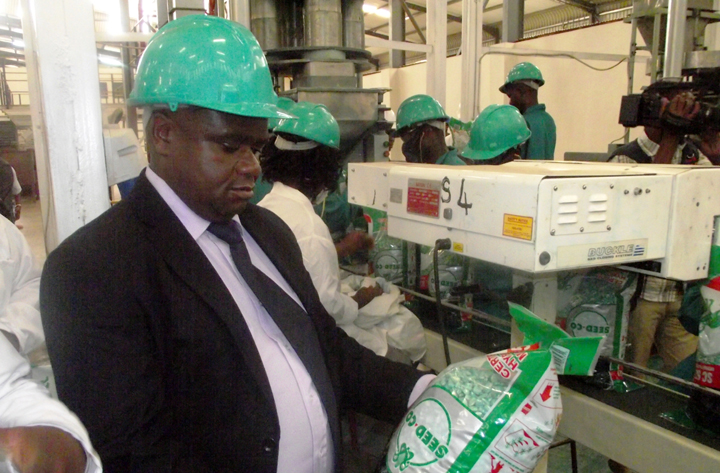SeedCo assures country of adequate hybrid seed stocks for 2024/25 farming season
Seed Co Zimbabwe, one of the country’s largest hybrid seed processors, says it will continue enhancing its thrust on innovation, breeding climate-smart products to catch up with the demands of the ever – changing climate conditions.
The seed – producing entity says it has significantly invested in research and development mainly at the Kadoma, Muzarabani, Shamva and Stapleford research stations.
Shamva and Stapleford stations are dedicated to disease resistance and yield while the Muzarabani and Kadoma focus on breeding climate-smart varieties that can withstand drought and extreme weather conditions.
According to SeedCo, strides have been made in making a product basket with different maturity ranges mainly enhancing the 400 series (Tsoko) going down to 301 series (Tsuro), varieties which are specific for drought conditions and are able to withstand extreme weather conditions.
The 301 and 303 series were well received in the market in the prior season as farmers sought varieties that could resist the El Nino induced drought.
Seed Co’s Research and Development department efforts are now directed towards coming up with the 200 series which is likely to be introduced in due course.
On the vegetables side, Seed Co is working on varieties that are suitable for the ever-changing climatic conditions.
The vegetable department has mainly been focusing on breeding crops that are disease resistant, marketable, enhanced taste, storable and uniformity in size of the fruit.
All these attributes are very important for the end market, according to Seed Co Zimbabwe acting managing director, Felistas Ndawi-Gurajena.
“We are in a dry season, we have a drought, as was declared by the President (Mnangagwa) recently, and as Seed Co, we have a strategic initiative to produce products that can withstand extreme weather conditions.
“We have been reconsidering our breeding programmes. We have been working extensively on our Research and Development intending to produce more climate-smart products,” she said.
She said the company had enough stocks of seed for the next cropping season after combing seed from the last season and from the 2023-24 season, which was produced mainly under irrigation.
“We were fortunate that we got to know about the expectation of a drought coming in for 2023 into 2024. We then put in structures and strategies to make sure that there is sufficient seed for next summer. So, we have enough seed going into the next summer.
“Our factory in Stapleford is full of maize seed for the next season. We have got enough to sell for two years if need be. So yes, we have got some seed that was produced in this season, but 100 percent under irrigation, but even without that we have enough for this summer,” she said.
She also acknowledged the positive impact of the state-assisted farming programmes that the President has spearheaded.
“State-assisted farming programmes have been very useful to the farmers and to Seed Co as well because they have enabled disadvantaged farmers to afford improved hybrid seed…and if they manage to harvest something after the first time, they will be able to then raise money to go back and purchase these products on their own. So, we are very grateful for those programmes that have exposed our farmers,” she said.
She was also upbeat about the horticulture segment given the growing demand for Zimbabwean produce in the Middle East.
The range of products includes butternuts and your melons and this is an opportunity for local farmers.
“Horticulture remains a very exciting space for our farmers. There is a lot of interest right now in Zimbabwean-produced horticulture products to destinations as far as the Middle East.
“For instance, our peas industry is booming, starting to grow again after taking a dip during Covid 19. This is a big opportunity for us in terms of peas exports, a chance to reclaim our position as a major peas exporters to Europe,” she said.
In its third quarter trading update to December 2023, SeedCo indicated that the delayed rains led to increased demand for small grains and legumes, in Zimbabwe and neighbouring countries.
This demand for small grains holds significant potential to claw back annual sales volume performance not only in Zimbabwe but also in neighbouring countries.
In the third quarter, the total volume of Zimbabwe seed sales witnessed a 28 percent decline compared to the corresponding period in the preceding year, a consequence of delayed rains and diminished enthusiasm for cropping due to the El Nino phenomenon.-ebusinessweekly








